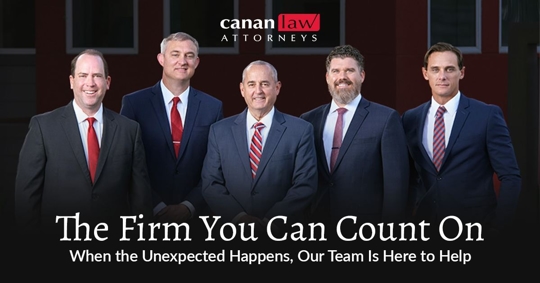State of Florida v. Harris – United States Supreme Court
This story brought to you by Canan Law, the most respected team of attorneys in St. Augustine.
Police departments nationwide make use of trained police dogs for a variety of law enforcement tasks including the detection of specific odors. These dogs give an “alert” to their police handlers when they smell the odors they are trained to detect. When a trained dog’s capacity to detect a certain odor has been formally certified by an expert, the evidence police gain from dog searches frequently is permitted in criminal cases in court.
Normally, police can use a drug-sniffing dog to search a vehicle without having to obtain a warrant from a judge. However, in the case of Harris v. State, the state court indicated a police dog’s “alert” is not enough by itself to satisfy the court’s requirement the dog be properly trained and certified for the detection of a specific illegal drug.
In this case, Aldo, a drug-sniffing police dog was trained to detect various illegal narcotics including methamphetamine. During a traffic stop in 2006, Aldo indicated to his police handler the possible presence of drugs in Clayton Harris’ truck. A search of the vehicle resulted in the discovery of all the ingredients for making methamphetamine. Ultimately, Harris was arrested and charged with possession of pseudoephedrine for use in manufacturing methamphetamine.
Harris asked the court to throw out evidence showing drugs were found in his truck, citing Aldo’s alert did not give police probable cause to search his vehicle. The Florida court agreed; arguing the officials’ contention a trained drug dog certified to detect narcotics was not enough to establish the dog’s reliability in Court. The Court established an “alert” can be accepted as a basis for a search only if the evidence shows:
- How the particular dog was trained,
- What was done to satisfy an expert the dog was adequately trained,
- How the dog actually performed in “alerting” to drugs in other situations, and
- How well trained and experienced was the dog’s police handler.
In addition, police needed to present training and certification records, field performance records, along with an explanation of these records including success/failure rate, false alerts, and records documenting handler training and experience.
Recently, the U.S. Supreme Court issued a ruling which overturned the decision in Harris v. State. On February 19, 2013, the U.S. Supreme Court unanimously decided “a sniff is up to snuff” when all the facts surrounding a dog’s alert, viewed through the lens of common sense, would make a reasonably prudent person think a search would reveal contraband or evidence of a crime.
Instead of depending on police performance logs, which may contain errors, the Supreme Court stated records from the dog’s training and certification are much more reliable.
A person accused of having illegal drugs based on a dog’s alert must have an opportunity to challenge the dependability of the training evidence and to test whether the police handler might have “cued” the dog to make an alert. But, “if the state has produced from controlled settings that a dog performs reliably in detecting drugs, and the defendant has not contested that showing, then the court should find probable cause.”
If you or your loved one has recently been arrested and charged with a drug crime offense, contact a Canan Law attorney today. Whether you face possession, sales, or manufacturing charges, let our firm help prepare the best possible defense. Learn more about Canan Law, their experienced and proven legal services, and your specific charges by visiting our website or contacting the firm today. Our criminal law attorneys are available 24/7 to help you with your case.
Call us or stop by our offices at 43 Cincinnati Avenue in downtown St. Augustine if you have any questions about a pending criminal matter.
Canan Law, the most respected team of attorneys in St. Augustine, keeps you informed with blog posts discussing legal terms and Florida court cases that matter to you. Ask your legal question today with our website’s live chat feature!



